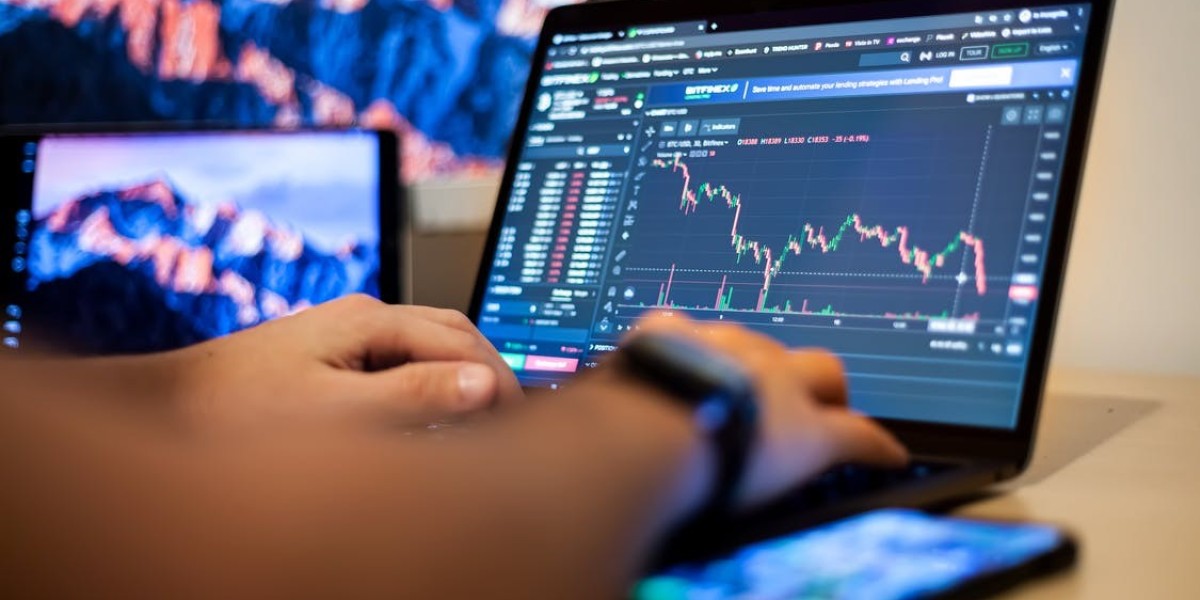Forex (Foreign Exchange) trading can seem intimidating to beginners, but with the right strategies and mindset, it can become a rewarding venture. The global forex market, with a daily trading volume exceeding $6 trillion, offers enormous potential for investors. However, success in this market requires knowledge, discipline, and patience. Here’s a simplified guide with top strategies for beginners to navigate the world of forex trading.
1. What if you were to trade with only $100?
Before diving into strategies, it’s important to grasp the fundamentals of forex trading. Forex trading involves buying and selling currencies with the aim of making a profit. Currency pairs, such as EUR/USD or GBP/JPY, represent the relationship between two currencies. The first currency in the pair is the base currency, and the second is the quote currency. The goal is to predict whether the value of the base currency will rise or fall against the quote currency.
2. Start with a Demo Account
Most brokers offer demo accounts that allow you to practice trading with virtual money. This is an excellent way for beginners to get a feel for the market without risking real funds. Use this opportunity to familiarize yourself with the trading platform, test your strategies, and understand market movements before jumping into live trading.
3. Focus on a Few Currency Pairs
While there are hundreds of currency pairs to choose from, it’s advisable for beginners to focus on just a few major pairs, such as EUR/USD, GBP/USD, or USD/JPY. These pairs tend to have high liquidity, meaning there’s always a significant number of buyers and sellers. This makes them less volatile and more predictable compared to exotic pairs, which can be more prone to sudden price fluctuations.
4. Use Technical Analysis
Technical analysis involves studying price charts and using indicators to forecast future price movements. Some common technical tools used by traders include moving averages, RSI (Relative Strength Index), and MACD (Moving Average Convergence Divergence). These indicators help to identify trends, overbought or oversold conditions, and potential reversal points. For beginners, starting with one or two simple indicators can help develop a better understanding of the market.
5. Implement Risk Management Techniques
One of the most important aspects of forex trading is managing risk. Trading without a solid risk management strategy can lead to significant losses. Always set stop-loss orders to limit your losses if a trade goes against you. A stop-loss is a predetermined level at which the position will be automatically closed to prevent further losses. Additionally, ensure you’re not risking more than a small percentage of your capital on a single trade, typically no more than 1-2%.
Also Read: Mastering Confidence in Forex Trading
6. Practice Patience and Discipline
Forex trading is not about making quick profits; it’s about developing a consistent approach. Beginners often make the mistake of chasing the next big trade, but successful traders know that patience and discipline are key. Stick to your trading plan, avoid emotional decision-making, and don’t try to force trades when the market conditions aren’t favorable. Staying disciplined will help you avoid unnecessary risks and increase your chances of success in the long run.
7. Learn from Mistakes
Every trader, no matter how experienced, makes mistakes. The key is to learn from them. Keep a trading journal where you document each trade, including your reasoning behind entering the trade and the outcome. This will help you identify patterns in your trading behavior and improve your strategies over time. Don’t be discouraged by losses – they are a part of the learning process.
8. Stay Informed About the Market
The forex market is influenced by various factors, including economic indicators, geopolitical events, and interest rate changes. Stay informed about the latest news and trends to better understand how these factors may affect currency prices. Many successful traders also follow economic calendars that highlight upcoming events that can impact the market, such as central bank meetings or major economic reports.
9. Avoid Overleveraging
Leverage allows traders to control larger positions with a smaller amount of capital. While leverage can amplify profits, it also increases the potential for losses. Beginners should be cautious with leverage and avoid overleveraging their positions. Use leverage conservatively, and ensure you understand the risks involved before using it in your trades.
10. Keep Emotions in Check
Emotions, such as fear and greed, are common in trading, and they can cloud your judgment. Fear can prevent you from making profitable trades, while greed can lead you to take unnecessary risks. Developing emotional control is crucial to being a successful forex trader. Stick to your plan and remain calm, even when the market is volatile.
Conclusion
Forex trading may seem complex at first, but with a solid understanding of the basics, a well-thought-out strategy, and disciplined risk management, it can become a valuable tool for building wealth. Remember, success in forex trading takes time. Focus on learning, improving your skills, and staying patient. By following these simple strategies, beginners can set themselves on the path to becoming more confident and capable traders
Start with GoDoCMand see if it’s the right fit for you by checking the GoDoCM review.









